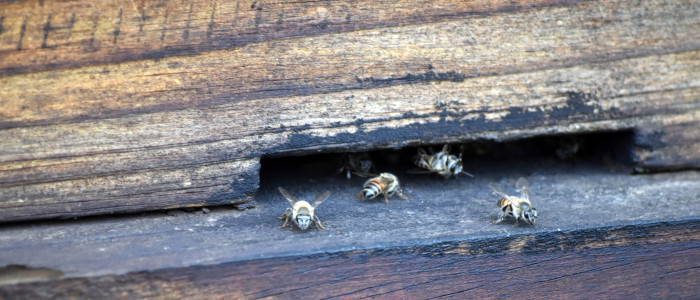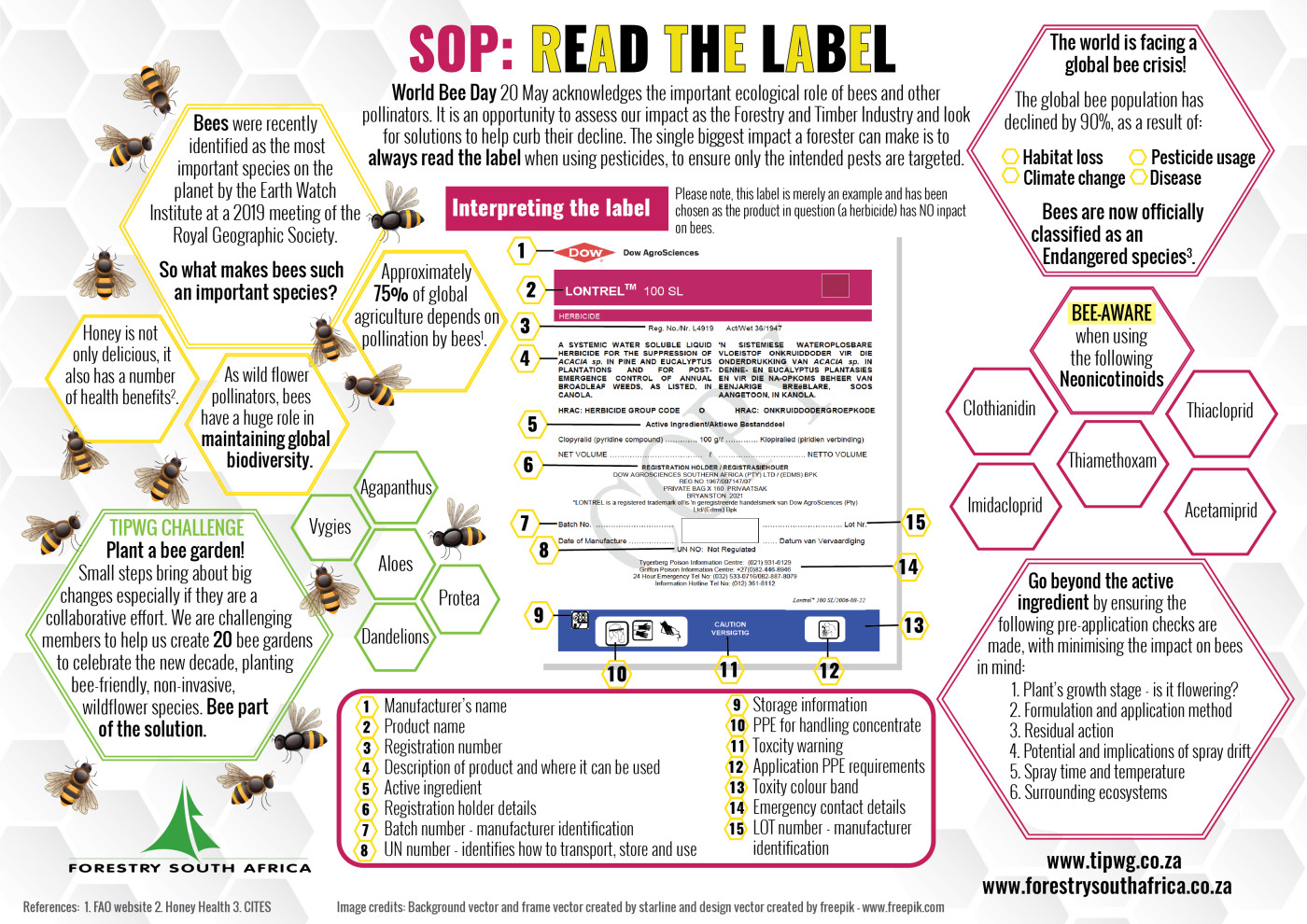
Today, on World Bee Day, Forestry South Africa (FSA) joins a global movement to acknowledge the important ecological role of bees and look for solutions to help curb their dramatic global decline.
“A CropLife article last year provided a light bulb moment, when it discussed the disastrous impact pesticide negligence, in an agricultural setting, had on the bee populations in the Western Cape and how this could have been avoided if those applying the pesticides had simply read the label.” explains Roger Poole, Chairman of the Timber Industry Pesticide Working Group (TIPWG).
Forestry, for the most part, limits its use of pesticides to the establishment phase of plantations or in meeting our legal obligations with regard to the control of invasive weed and preparation of tracer belts for fire breaks.
Reading the label is an integral aspect of the responsible and effective pesticide use promoted by TIPWG. So, in celebration of World Bee Day, TIPWG has produced a Standard Operating Procedure, or SOP, highlighting both the global plight of bees and the importance of reading the label.

Download Bee SOP - credit www.tipwg.co.za.pdf
“As foresters, the single biggest impact on bees’ survival we can have is to always read the label when using pesticides. The importance of this cannot be overstated, as the label contains a wealth of information with regard to using the pesticide including limiting non-target effects”, Roger explains, “however, we wanted the SOP to convey more than simply a message to read the label.
We wanted it to champion bees by reminding our members of the bee’s plight and conveying other simple ways the Sector could make a difference, including forging partnerships with beekeeping organisations and planting bee gardens”
TIPWG is challenging FSA members to plant bee gardens and hopes members will help them create 20 new bee gardens across the forestry landscape in celebration of World Bee Day.
For more information, contact Roger Poole chairman@tipwg.co.za and visit the TIPWG website
www.tipwg.co.za
About TIPWG
The Timber Industry Pesticide Working Group (TIPWG), pronounced TIP-WIG, promotes the
responsible and effective use of pesticides in South African commercial timber plantations through industry collaboration and the provision of technical support and guidelines on issues relating to, among many other things, compliance. To learn more about TIPWG visit www.tipwg.co.za
About Forestry South Africa
Forestry South Africa (FSA) is South Africa’s largest forestry organisation representing growers of timber in South Africa. The Association’s membership includes all 11 corporate forestry companies active in the Industry, approximately 1,300 commercial timber farmers and some 20,000 emergent small-scale growers who between them own or control no less than 93% of the total plantation area in the country. Given these credentials, FSA is regarded by Government and the private sector alike, as being the Industry’s “representative body”. The Association’s structure mirrors its membership with three separate and distinct entities under the umbrella of an overall Executive Committee, namely:
Large Growers Group - corporate timber growers
Medium Growers Group - commercial timber farmers
Small Growers Group - emergent timber growers
Each of these groups have their own committee structure with proportional representation on the Executive Committee. FSA was granted registration as a Non-Profit Organisation in terms of the Non-Profit Organisation Act (Act No. 71 of 1997), by the Department of Social Development.
The FSA website provides a wealth of information about FSA as an Organisation, its objectives and staff. It is linked with the Forestry Explained website, which provides a detailed overview of the Forestry Sector.
Editor's Note
Bees are of vital importance for the food industry, as they are a key pollinator for food crops and fresh produce. Without them, our food supply will be under threat.



